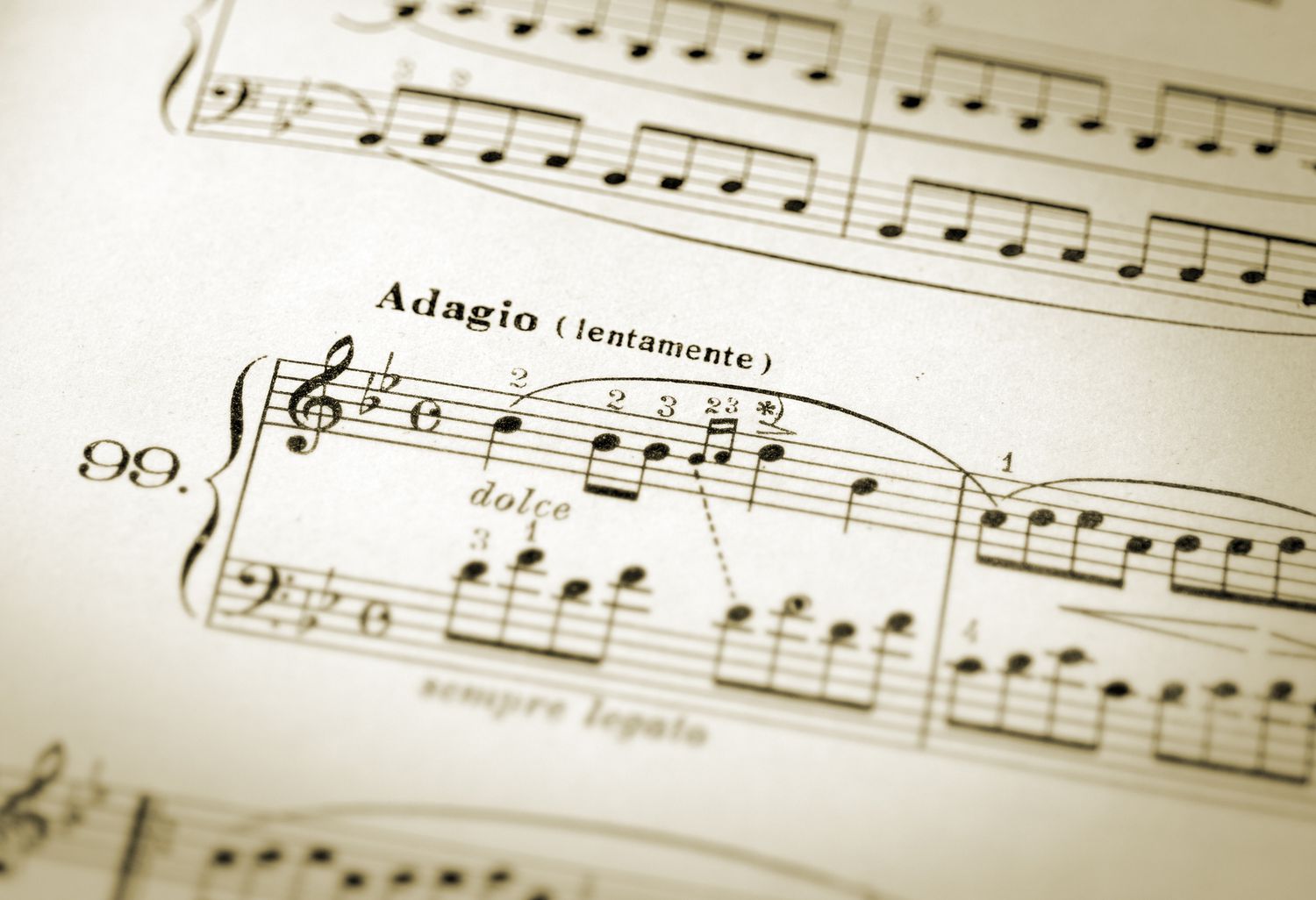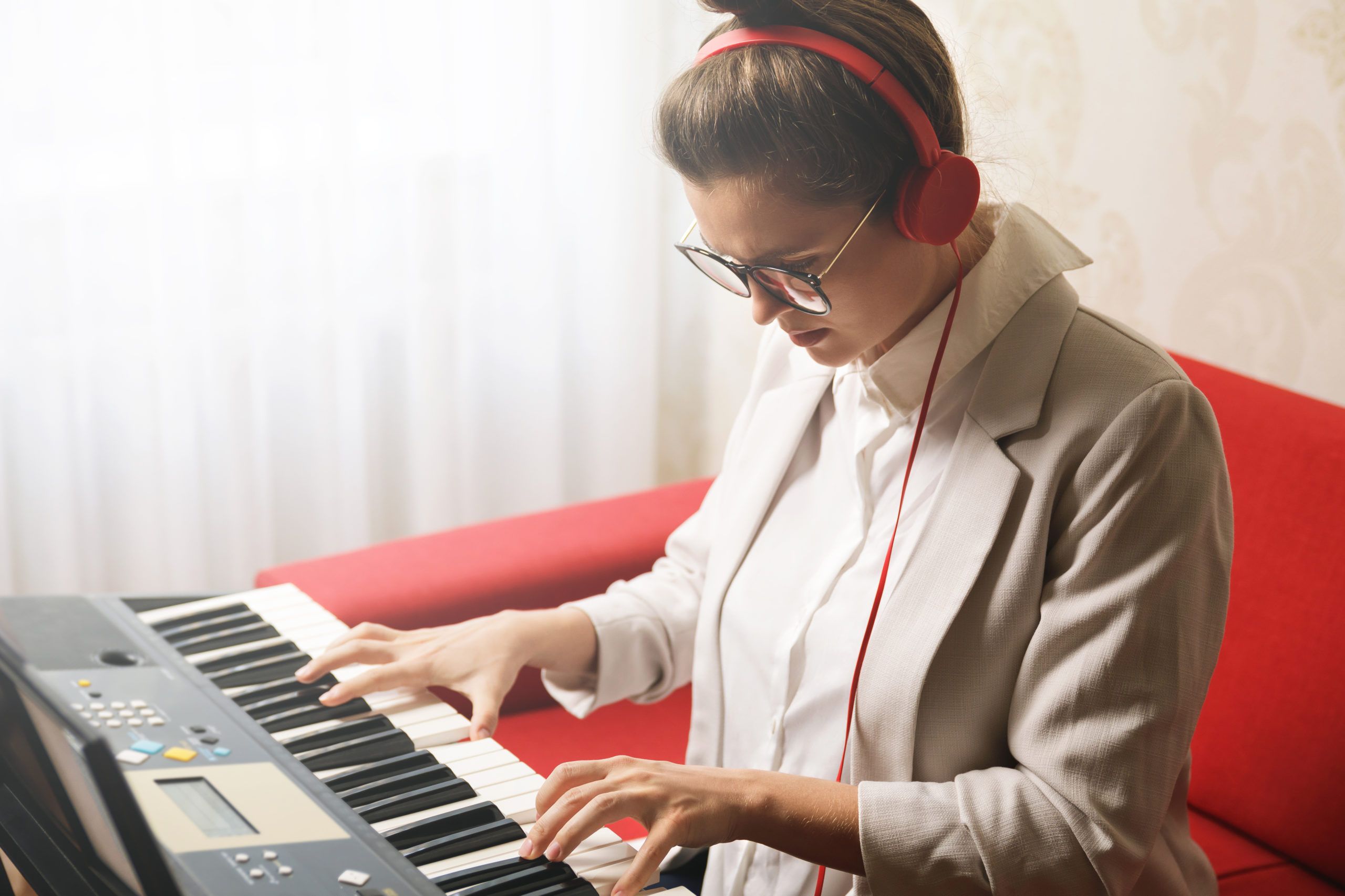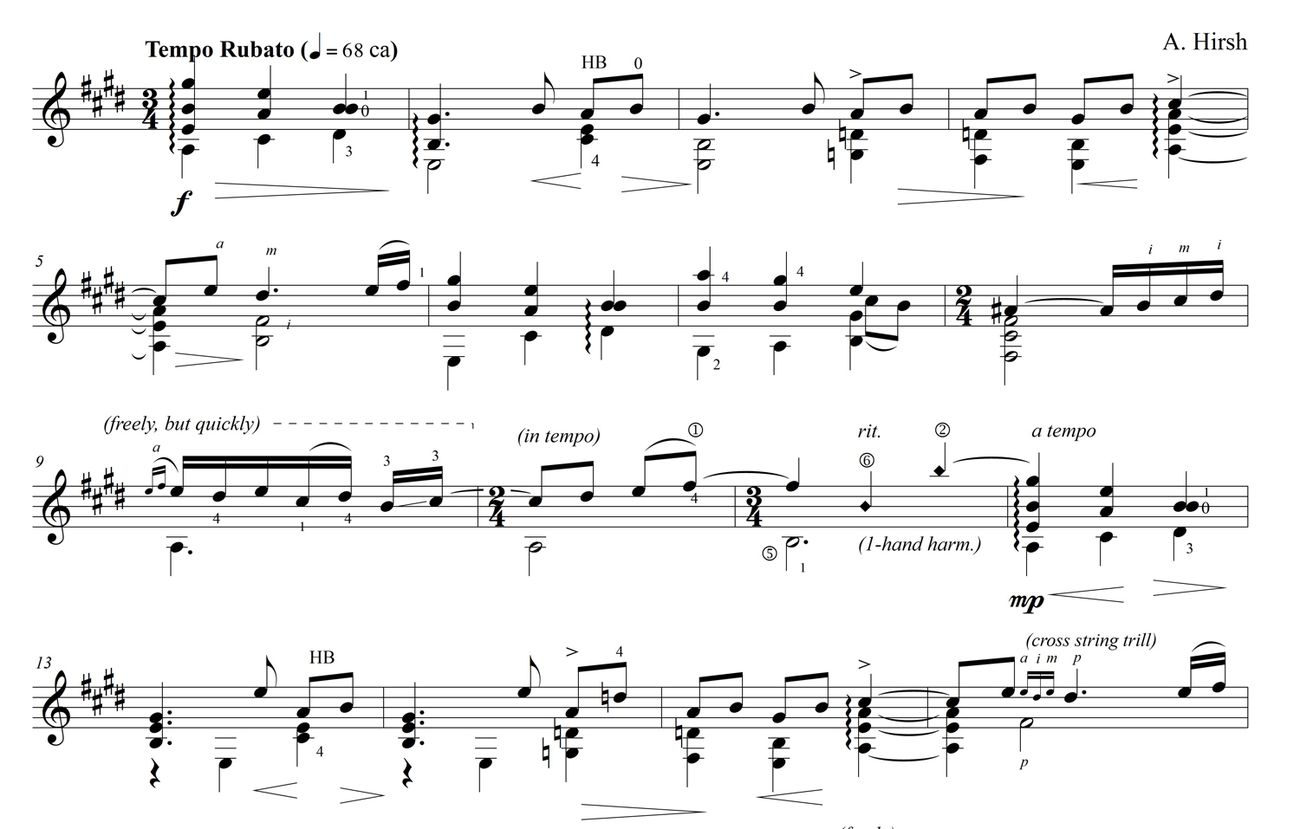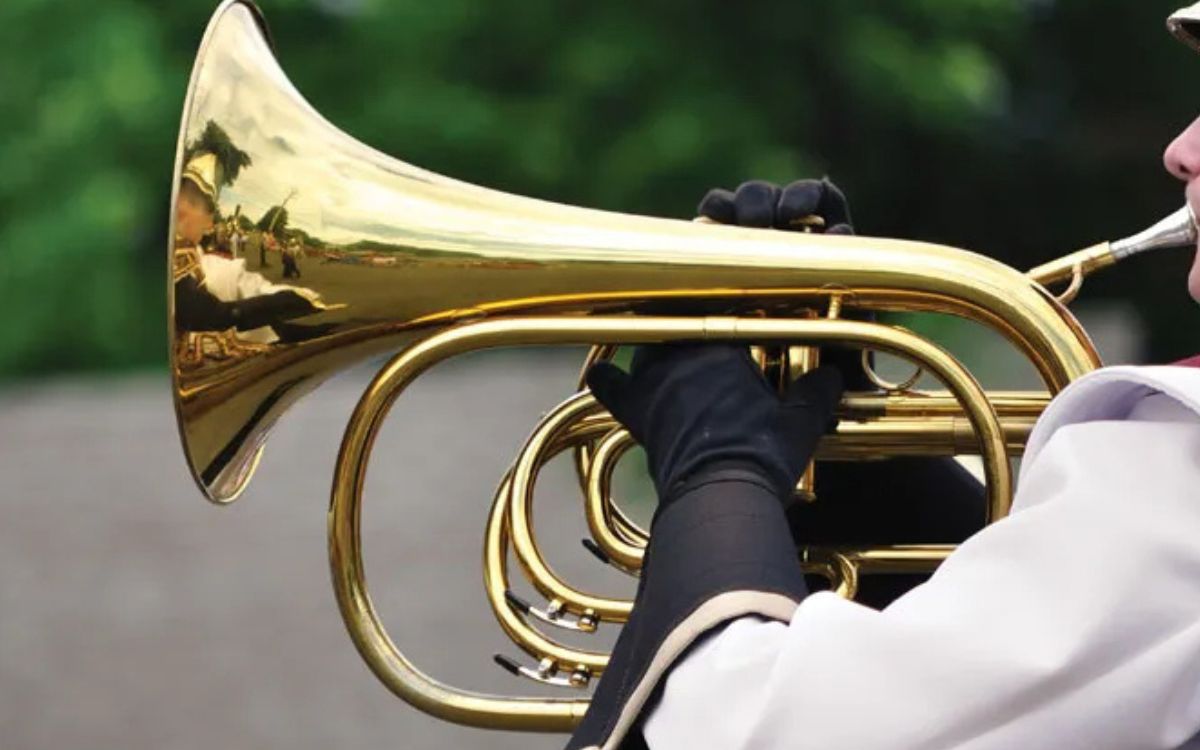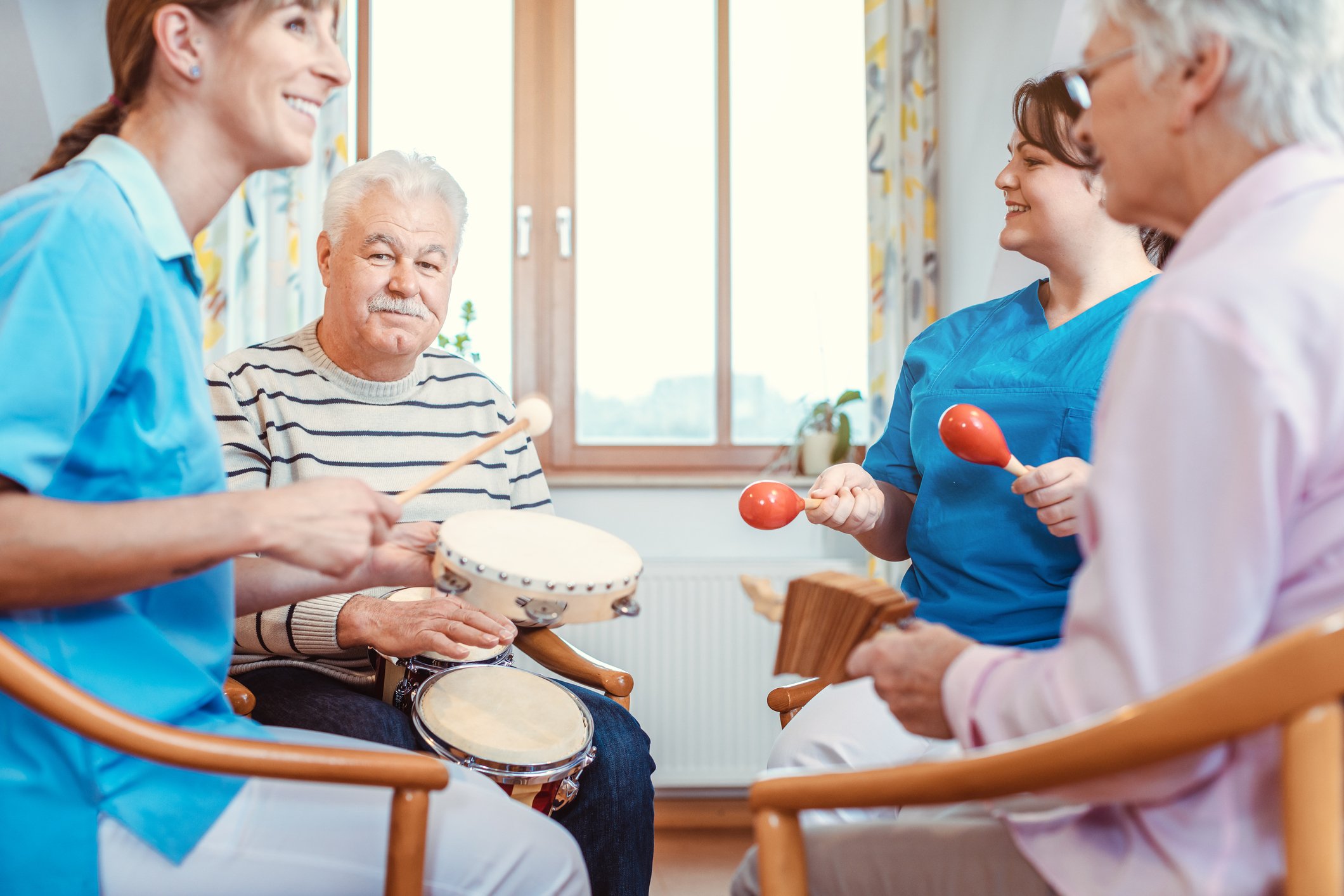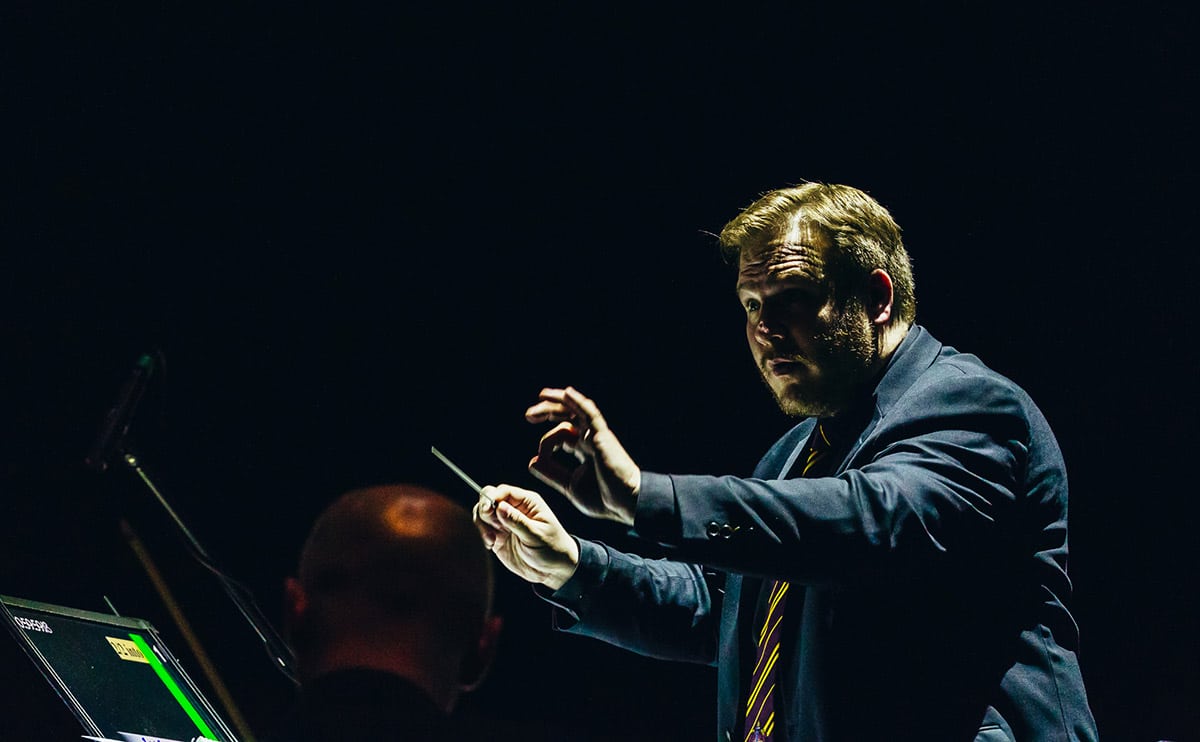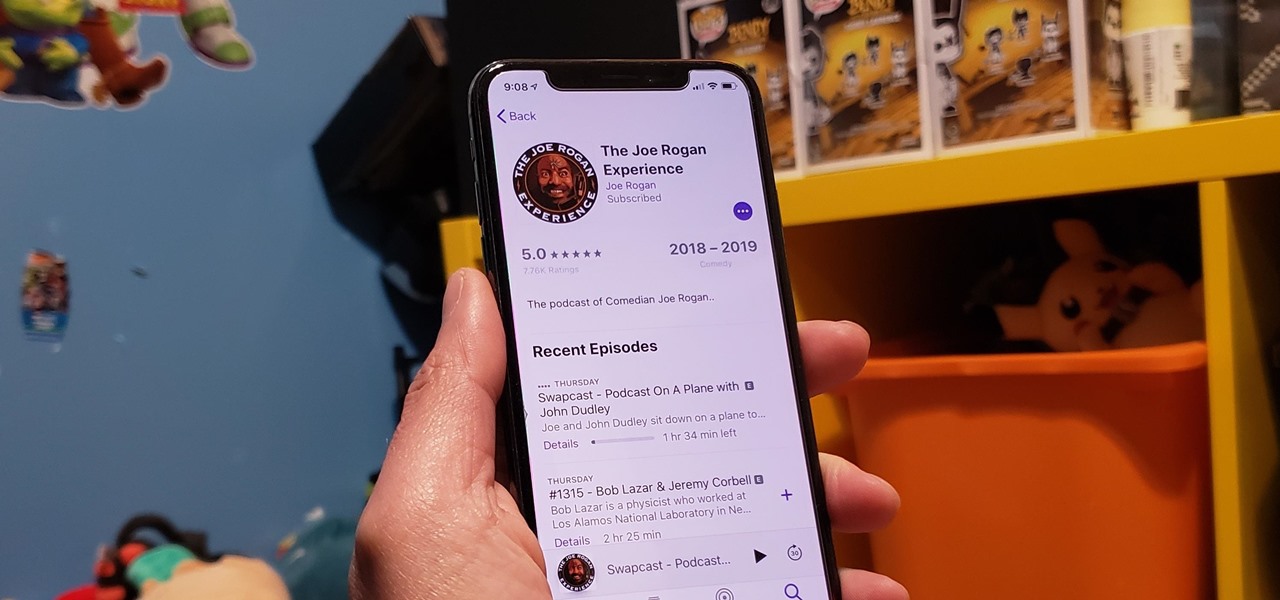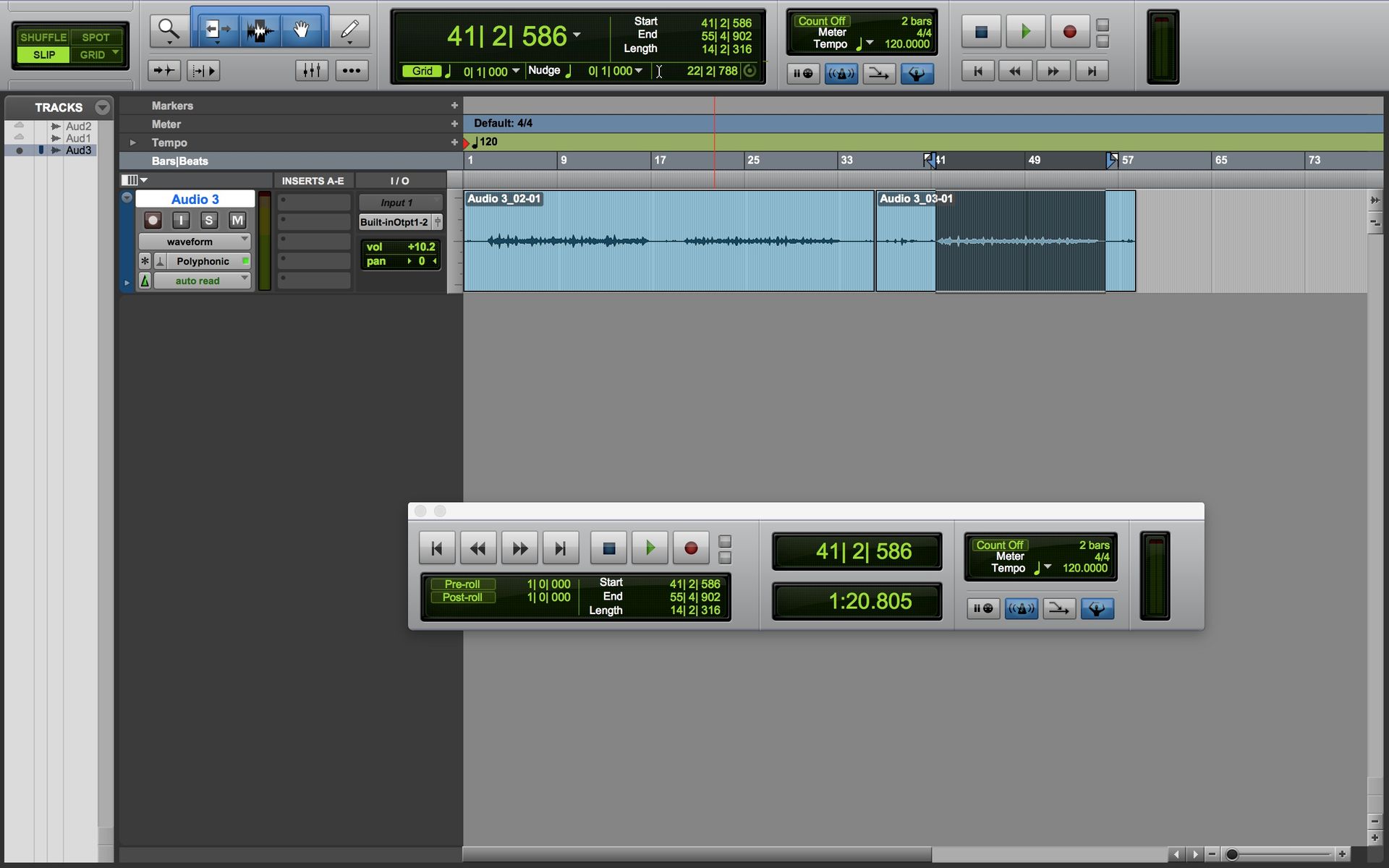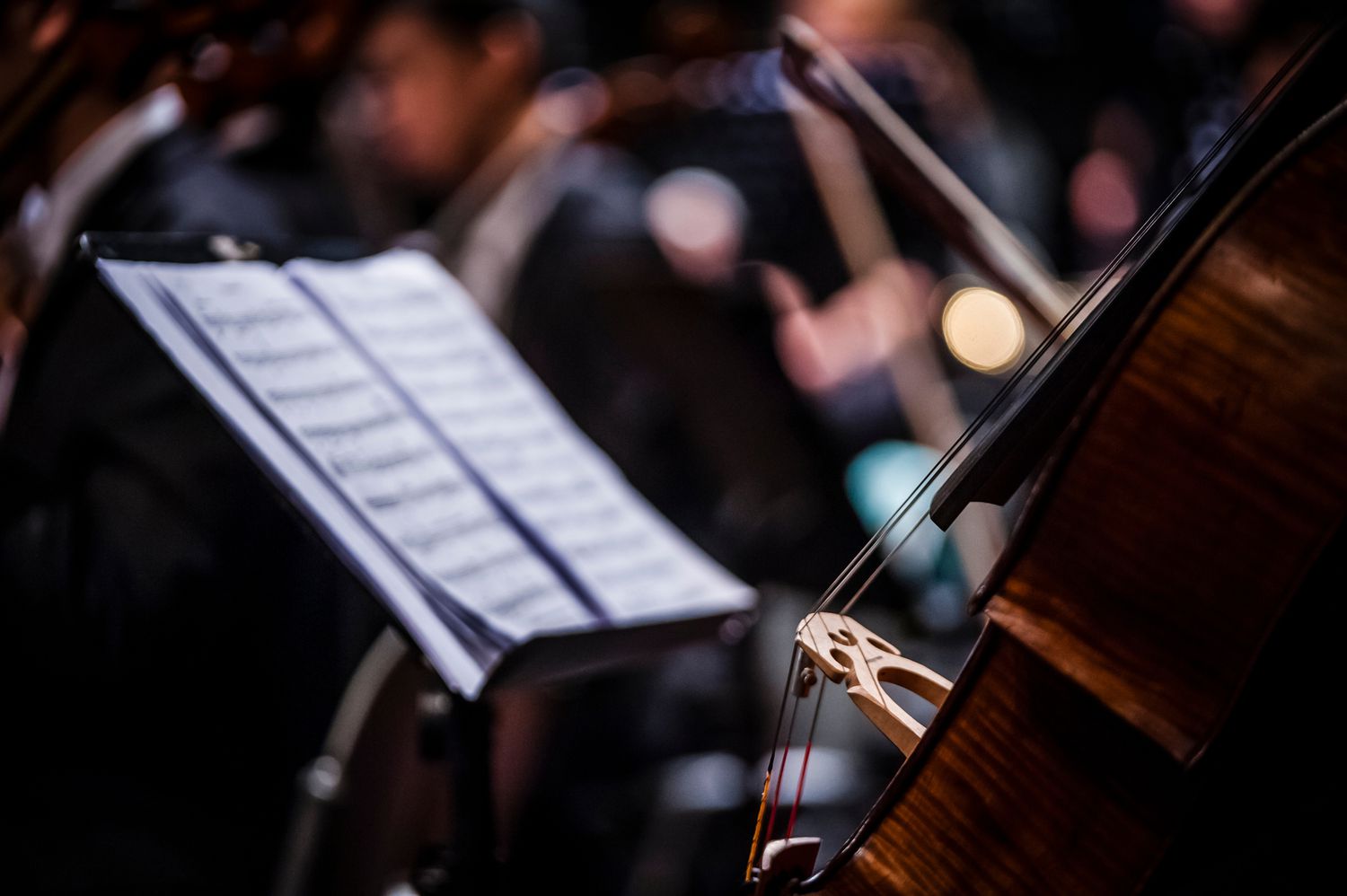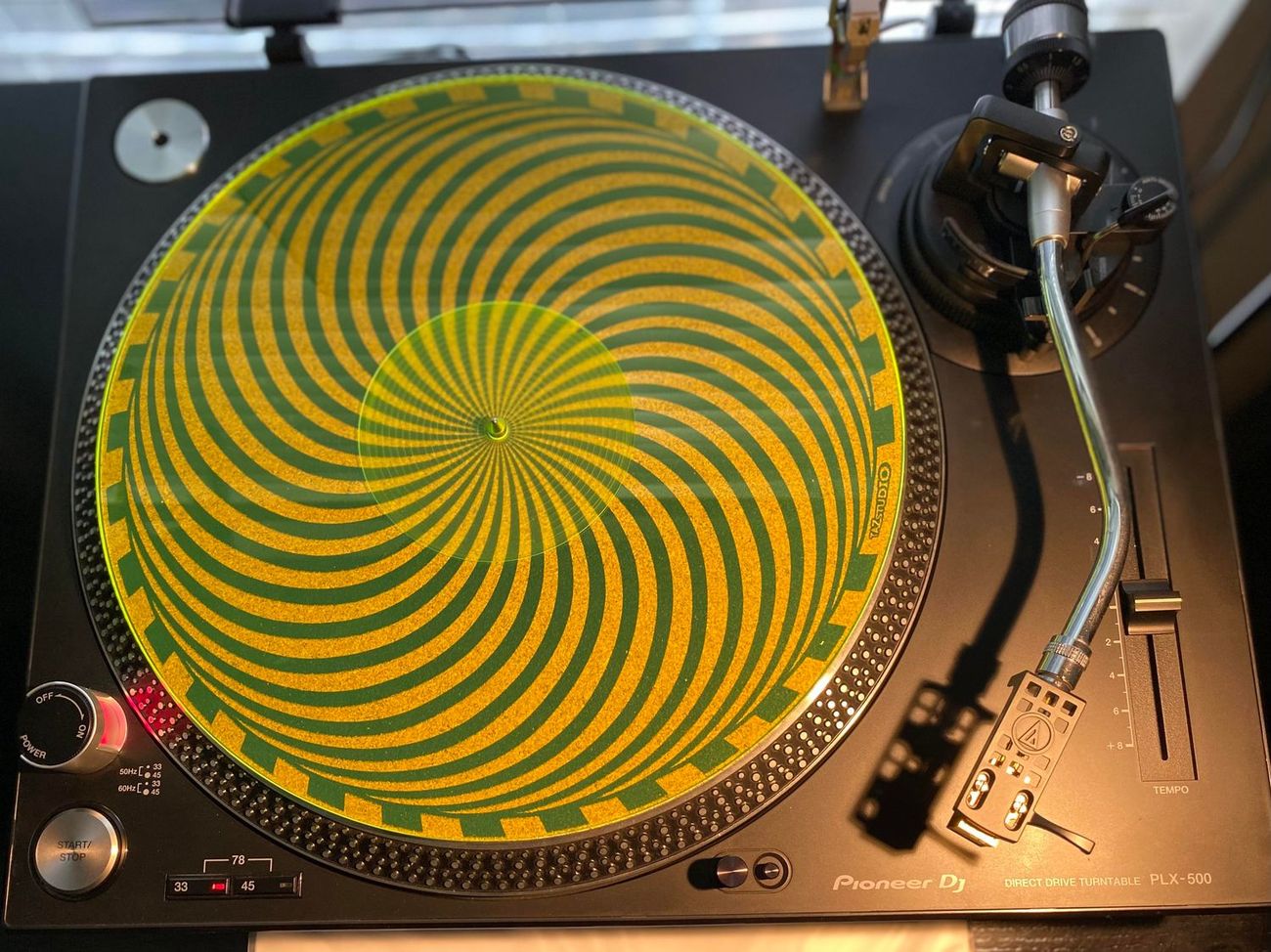Home>Production & Technology>Tempo>Why Does Music Tempo Affect Heart Rate


Tempo
Why Does Music Tempo Affect Heart Rate
Modified: February 1, 2024
Discover the connection between music tempo and heart rate. Explore why different tempos can impact your heart rate and learn how to optimize your music playlist for health benefits.
(Many of the links in this article redirect to a specific reviewed product. Your purchase of these products through affiliate links helps to generate commission for AudioLover.com, at no extra cost. Learn more)
Table of Contents
Introduction
Music has a powerful effect on our emotions and can transport us to different moods and states of mind. Whether it’s a soft and soothing melody or an upbeat and energetic rhythm, music has the ability to evoke strong emotional responses. But did you know that music can also have a direct impact on our physical well-being?
One intriguing aspect of this relationship between music and our bodies is the effect of tempo on heart rate. Tempo refers to the speed or pace of a musical composition, with faster tempos generally associated with higher energy levels and increased arousal. This raises the question: why does music tempo affect heart rate?
Understanding the connection between music tempo and heart rate requires exploring the intricate workings of our cardiovascular system and the influence of external stimuli on our physiological responses. By delving into scientific research and examining the psychological and physiological explanations, we can gain insights into how music affects our heart rate and explore potential applications and implications of this phenomenon.
So buckle up and get ready to dive into the fascinating world of music tempo and its impact on our heart rate. We will explore the scientific studies, delve into the reasons behind this connection, and uncover the role of music preferences in shaping our physiological responses. By the end, you’ll have a deeper understanding of why music has the power to get your heart pumping or help you find a state of relaxation.
Understanding Heart Rate
Before we delve into the influence of music tempo on heart rate, let’s first understand what heart rate is and its significance in our overall health and well-being. Heart rate refers to the number of times our heart beats per minute, and it serves as an essential indicator of our cardiovascular health.
Our heart, a remarkable muscle, works tirelessly to pump oxygen-rich blood throughout our body. The rate at which our heart beats can vary depending on numerous factors, including physical activity, emotional state, and environmental stimuli.
Resting heart rate is the number of times our heart beats per minute when we are in a state of rest. For most adults, a normal resting heart rate ranges from 60 to 100 beats per minute. However, athletes and individuals with a high level of cardiovascular fitness may have lower resting heart rates.
When we engage in physical activity or experience heightened emotions, our heart rate increases to meet the demands of our body. This increased heart rate enables our muscles to receive adequate oxygen and nutrients to perform efficiently.
Monitoring our heart rate can provide valuable insights into our health and fitness levels. It can help identify and track changes in cardiovascular health, assess the effectiveness of exercise programs, and assist in managing stress levels. Therefore, understanding how external factors such as music tempo affect our heart rate is a compelling area of research.
Now that we have a basic understanding of heart rate and its significance, let’s explore how music tempo can influence our heart rate and the intriguing connection between the two.
The Influence of Music on Heart Rate
It is no secret that music has a powerful impact on our emotions and can elicit various physiological responses. Whether it’s the goosebumps we feel when listening to a powerful ballad or the urge to dance when a catchy tune plays, music has the ability to move us. But how does music actually influence our heart rate?
Studies have shown that listening to music can directly affect our autonomic nervous system, which is responsible for controlling involuntary bodily functions such as heart rate. Different types of music can elicit different physiological responses, with tempo playing a significant role.
When we listen to music with a faster tempo, our heart rate tends to increase, as our bodies naturally synchronize with the rhythm of the music. This phenomenon is often referred to as “entrainment,” where our internal physiological processes align with external rhythmic stimuli.
On the other hand, listening to music with a slower tempo can have the opposite effect, promoting relaxation and reducing heart rate. This is why slow, calming music is often used in practices like meditation, yoga, and stress reduction techniques. Such music helps to induce a state of relaxation and facilitate a slower, more regular heartbeat.
Interestingly, the influence of music on heart rate is not solely dependent on tempo. Other factors, such as volume, melody, and lyrics, can also contribute to the physiological response. For example, more complex and dissonant melodies may evoke a heightened physiological response, leading to an increased heart rate compared to simpler and more consonant melodies.
Moreover, our personal connection to the music we listen to can also impact our physiological response. If we have positive associations or emotional attachments to certain songs, they may evoke stronger emotional responses, which can in turn affect our heart rate. This explains why a familiar and beloved song can have a more pronounced effect on our heart rate compared to a random piece of music.
Overall, the influence of music on heart rate is a complex interplay between various factors such as tempo, volume, melody, and personal associations. By understanding these dynamics, we can explore the scientific studies conducted on this phenomenon and gain deeper insights into how music tempo specifically affects our heart rate.
Tempo and Heart Rate Connection
The connection between tempo and heart rate is a fascinating subject of study, as the rhythmic qualities of music have a profound influence on our physiological responses. Tempo refers to the speed or pace of a musical composition, typically measured in beats per minute (BPM). As we listen to music, our bodies naturally synchronize with the tempo, leading to changes in heart rate.
Research has consistently demonstrated a strong correlation between tempo and heart rate. As the tempo of music increases, our heart rate tends to rise in response. This connection can be explained by the phenomenon of entrainment, where our internal bodily rhythms align with the external rhythm of the music we’re listening to. In simple terms, our heart rate wants to match the beat of the music.
Studies have shown that listening to music with a faster tempo can lead to an increase in heart rate, as our bodies involuntarily respond to the energetic rhythm. Upbeat and lively music tends to have a stimulating effect, triggering physiological arousal and causing our hearts to beat faster. This can contribute to feelings of excitement, motivation, and increased energy levels.
Conversely, slower tempo music has been found to have a calming effect on heart rate. As the tempo decreases, our heart rate tends to follow suit, promoting relaxation and a sense of tranquility. Slower tempo music is often utilized in therapeutic settings, such as stress reduction programs or guided meditation, to induce a state of relaxation and lower heart rate.
It’s important to note that the relationship between tempo and heart rate is not universal for everyone. Individual differences, including age, fitness level, and personal preferences, can impact how each person’s heart rate is affected by music. Additionally, the emotional content of the music can also play a role, as intensely emotional or emotionally arousing music can elicit a stronger response in heart rate.
The tempo and heart rate connection demonstrates the intricate relationship between music and our physiological responses. Whether we are seeking an energetic boost or a calm and soothing experience, music tempo can be a powerful tool in regulating our heart rate and influencing our overall state of well-being.
Scientific Studies on Music Tempo and Heart Rate
Over the years, numerous scientific studies have been conducted to explore the relationship between music tempo and heart rate. These studies provide valuable insights into the physiological effects of music and shed light on the mechanisms behind the connection. Let’s dive into some key findings from these studies:
In a study published in the Journal of Music Therapy, researchers investigated the impact of music tempo on heart rate variability (HRV), which is a measure of the beat-to-beat changes in heart rate. The study found that listening to music with a faster tempo resulted in increased HRV, indicating a higher level of cardiac arousal. Conversely, slower tempo music led to decreased HRV, signifying a state of relaxation.
Another study published in the Journal of Psychophysiology examined the effects of different tempos of music on heart rate and autonomic nervous system activity. The results showed that faster tempo music increased heart rate and sympathetic nervous system activity, while slower tempo music produced the opposite effect, reducing heart rate and promoting parasympathetic nervous system dominance, which is associated with relaxation.
Additionally, a study published in the Journal of Cardiology explored the effects of music tempo on cardiovascular responses during exercise. The researchers found that exercising with music at a faster tempo significantly increased heart rate and exertion levels compared to exercising with music at a slower tempo. This indicates that music tempo can impact our physiological response even during physical activity.
These studies, along with many others, consistently highlight the influence of music tempo on heart rate and provide scientific evidence supporting the connection. It is clear that music has the power to directly affect our cardiovascular system and modulate our heart rate based on the tempo of the music we listen to.
While these studies provide valuable insights, it is important to consider that individual differences and contextual factors can also influence the relationship between music tempo and heart rate. Factors such as personal music preferences, emotional attachment to specific songs, and overall health and fitness levels can all play a role in modulating the physiological response to music.
By understanding the findings of these scientific studies, we can further appreciate the intricate interplay between music and our physiological responses, and gain a deeper appreciation for the potential applications and implications of this knowledge.
Psychological and Physiological Explanations
The connection between music tempo and heart rate can be explained by a combination of psychological and physiological factors. Understanding both aspects provides a comprehensive view of why music has the power to influence our heart rate:
Psychological Explanations:
Our psychological responses to music, such as emotions, memories, and personal preferences, can impact our heart rate. When we listen to music, it has the ability to evoke strong emotions and trigger memories associated with specific songs or genres. These emotional and cognitive responses can lead to physiological changes, including fluctuations in heart rate. For example, listening to a fast-paced, upbeat song that brings back positive memories can increase our excitement and subsequently raise our heart rate.
Furthermore, our personal preferences for certain types of music can also play a role. If we have a strong affinity for faster tempo music, it is likely that our heart rate will naturally increase when listening to these types of songs due to the positive emotional response they elicit.
Physiological Explanations:
Physiologically, the connection between music tempo and heart rate lies in the concept of entrainment. Entrainment refers to the synchronization of our internal bodily rhythms with external stimuli. In the case of music, our body instinctively matches the tempo of the music we’re listening to, leading to changes in heart rate.
When we listen to music with a faster tempo, our bodies naturally attempt to synchronize with the energetic rhythm, resulting in an increase in heart rate. This happens due to the activation of the sympathetic nervous system, which prepares our body for arousal and heightened activity.
Conversely, slower tempo music can have a calming effect on our heart rate. As we listen to tranquil melodies, our bodies tend to align with the slower rhythm, activating the parasympathetic nervous system, which promotes relaxation and lowers heart rate.
These physiological responses are mediated by the release of neurotransmitters and hormones, such as dopamine and cortisol, which can influence our heart rate and overall state of arousal.
Combined Impact:
Both psychological and physiological factors work hand in hand to affect our heart rate in response to music tempo. Our personal preferences and emotional connections to certain songs or genres can heighten the psychological response, while the innate instinct of entrainment drives the physiological changes in heart rate.
Understanding these psychological and physiological explanations allows us to appreciate the intricate nature of the music-heart rate connection and underscores the profound impact that music has on both our mind and body.
The Role of Music Preferences
Music preferences play a significant role in shaping our physiological responses, including the influence of music tempo on heart rate. The connection between our personal tastes in music and our physiological reactions can be attributed to several factors:
Emotional Connection:
Our emotional connection to music is a key determinant in how it impacts our heart rate. When we have a strong emotional attachment or positive associations with certain songs or genres, they have the potential to elicit stronger emotional responses, which in turn can affect our heart rate. For example, listening to our favorite song may induce feelings of happiness and excitement, causing our heart rate to increase.
Contextual Significance:
The context in which we listen to music also influences our physiological response. For instance, if we associate a particular song or genre with a specific activity such as exercising, our body may naturally respond with increased heart rate when we hear that music in a similar context. The brain’s neural connections formed between the music and the activity create an automatic physiological response pattern.
Personalized Arousal:
Our individual levels of arousal and stimulation thresholds can vary greatly, influencing how music tempo affects our heart rate. Some individuals may find music with faster tempos more arousing and stimulating, resulting in a greater increase in heart rate, while others may have a higher threshold for arousal and require a faster tempo to elicit a noticeable effect.
Cultural Influences:
Cultural background and exposure to specific types of music can shape our music preferences. Different cultures have distinct musical styles and rhythms that evoke specific emotional and physiological responses. For example, certain cultures have traditional music with slow, calming tempos that promote relaxation, while others have music with fast, energetic beats that encourage movement and increased heart rate.
Personal Development and Conditioning:
Our music preferences can also be shaped by our personal experiences and conditioning. The music we are exposed to during our formative years, through family, friends, and cultural influences, can shape our preferences and our physiological reactions to different types of music. Conditioning from past experiences, such as associating certain songs with joyful or stressful events, can also influence our heart rate response to specific music.
By considering the role of music preferences in the relationship between music tempo and heart rate, we begin to understand the subjective nature of this influence. Each person’s unique preferences and associations contribute to the individualized physiological responses they experience when listening to music.
Applications and Implications
The understanding of how music tempo affects heart rate has significant applications and implications in various areas of our lives. Let’s explore some of the practical applications and potential implications of this knowledge:
1. Stress Reduction and Relaxation:
Music with slower tempos can be utilized as a powerful tool for stress reduction and relaxation. Slower tempo music has been shown to lower heart rate and induce a state of calmness. This finding has led to the recommendation of using music with specific tempo ranges in therapeutic practices such as meditation, yoga, and stress management programs.
2. Exercise Performance Enhancement:
Understanding the relationship between music tempo and heart rate can help optimize exercise performance. Listening to music with a faster tempo can provide a motivational boost and increase energy levels during workouts. By choosing music with the appropriate tempo, individuals can synchronize their movements and heart rate, potentially enhancing endurance and overall exercise performance.
3. Emotional Regulation:
Music has the power to influence our emotions, and understanding the impact of tempo on heart rate can assist with emotional regulation. In situations where individuals may need help in shifting their emotional state, selecting music with the appropriate tempo can induce the desired emotional response, whether it is to uplift spirits, calm anxieties, or evoke a sense of focus and concentration.
4. Therapeutic Interventions:
The connection between music tempo and heart rate has implications in therapeutic interventions for various medical conditions. Music therapy, with its ability to influence heart rate, can be beneficial for individuals with cardiovascular conditions such as hypertension or cardiac rehabilitation. Additionally, these findings can inform the use of music in pain management, as music with a specific tempo can help alleviate discomfort and increase relaxation.
5. Personalized Music Experiences:
Understanding the impact of music tempo on heart rate allows for personalized music experiences. Music streaming platforms and personalized playlists can use this knowledge to curate individualized music recommendations based on the desired mood, activity, or emotional state. This can enhance the overall listening experience and cater to individual preferences and physiological responses.
It is important to keep in mind that while the findings regarding music tempo and heart rate are consistent, individual responses can still vary. Each person’s physiological and psychological makeup, as well as their personal preferences, can influence their specific reactions to music tempo.
By harnessing the power of music tempo and its influence on heart rate, we can explore these applications and implications to enhance well-being, improve performance, and create personalized experiences that resonate with individuals on a deeper level.
Conclusion
The connection between music tempo and heart rate provides a fascinating glimpse into the profound impact of music on our physiology and psychology. Through scientific studies, we have learned that music tempo has the ability to influence our heart rate, with faster tempos typically leading to an increase in heart rate and slower tempos promoting a decrease in heart rate.
This phenomenon can be explained by both psychological and physiological factors. Our emotional connection to music, personal preferences, and contextual significance all contribute to the psychological response. Meanwhile, the concept of entrainment and the activation of our autonomic nervous system play a crucial role in the physiological response to music tempo.
Understanding the relationship between music and heart rate opens up a world of applications and implications. It can be used to promote stress reduction and relaxation, enhance exercise performance, facilitate emotional regulation, and inform therapeutic interventions. Additionally, this knowledge allows for the creation of personalized music experiences tailored to individual preferences and physiological responses.
However, it is important to recognize that individual differences exist, and each person may have a unique response to music tempo based on factors such as personal conditioning, cultural influences, and previous experiences.
In conclusion, the connection between music tempo and heart rate unveils the intricate interplay between music and our bodies. The power of music to impact our heart rate highlights its potential as a therapeutic tool, a performance enhancer, and a means to evoke specific emotional and physiological responses. By embracing the influence of music tempo on our heart rate, we can deepen our appreciation for the profound effects of music on our well-being and explore its applications in enhancing various aspects of our lives.

